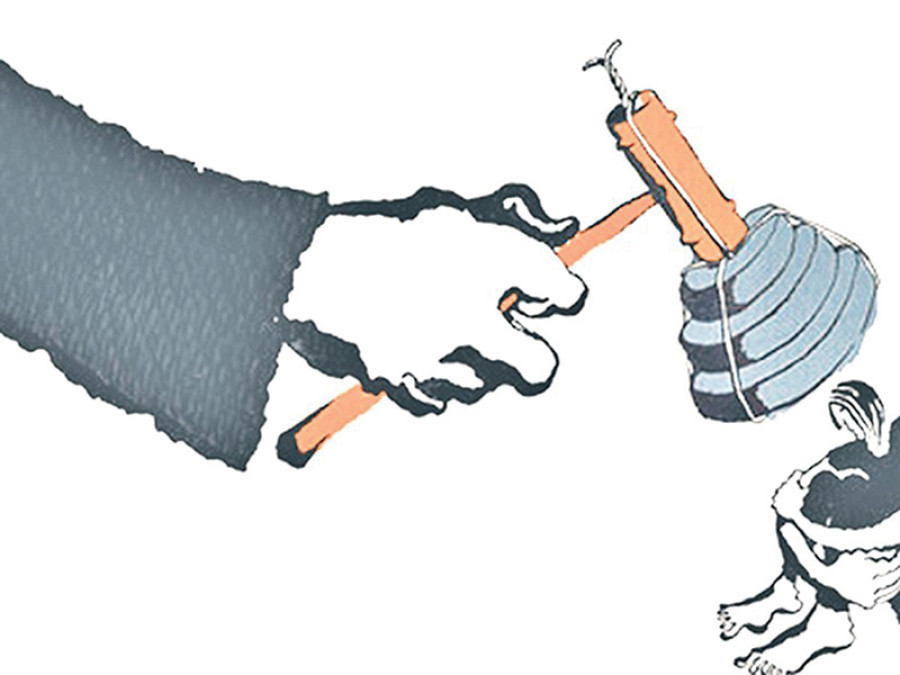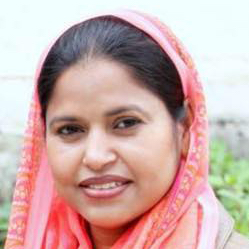Opinion
Rights all year round
NHRC needs to undertake structural reforms to make it fit for purpose in the new federal set-up
Mohna Ansari
As the National Human Rights Commission (NHRC) completes 17 years of its operations, it is an opportune time to review the effectiveness of the constitutional body. The NHRC was formed at a time when the Maoists had launched an armed struggle against the state. Human rights violations were committed by both parties—the insurgents and the security personnel. Despite resource constraints in the initial years of its formation, the NHRC did some commendable work under former Chief Justice Nayan Bhadur Khatri. Although various stakeholders, including the executive, sometimes criticise the NHRC’s work, it has so far played an important role in protecting and promoting human rights.
During the insurgency, cases of enforced disappearance were on the rise, and both sides of the conflict were blamed for such cases. The NHRC engaged with both parties and secured the release of many people who were victims of enforced disappearance. When king Gyanendra usurped power in 2005, the NHRC condemned the move and voiced opinion in favour of democracy. NHRC office bearers visited Geneva and lobbied the international community for the restoration of democracy in Nepal. King Gyanendra’s move had raised questions on the NHRC’s autonomy. It was seen as losing its independent constitutional image.
Examples of violation
During the Maoist insurgency, the NHRC had a difficult job, as both the rebels and the security personnel indulged in gross human rights violations. A total of 21 Maoist cadres were lined up and killed by security personnel at Doramba in Ramechhap district on August 17, 2003. The NHRC formed a probe team and investigated the case; it subsequently made recommendations to punish the security personnel involved in the incident.
The NHRC also investigated other cases of rights violations committed during the insurgency like the Madi incident in which 39 people, including 12 security personnel, were killed and 72 injured when a powerful bomb planted by the Maoists exploded in a public bus on June 6, 2005. This incident is considered one of the worst human rights violations to have taken place during the insurgency. The NHRC raised the issue as a war crime and breach of International Humanitarian Law. Despite its balanced and neutral approach, the NHRC faces criticism that it has failed to ensure that the government implements its recommendations.
When the Maoists signed a comprehensive peace agreement with the government in 2006, the NHRC played the role of a mediator between the two sides. After the CPA was signed, the NHRC continuously monitored the implementation of the pact. In the post conflict era too, the rights body played an important role in protecting and promoting human rights in the country. For example, during last year’s Madhes movement, the NHRC investigated the killings of protesters, individuals and security personnel in the Madhes and made recommendations. NHRC Chair Anup Raj Sharma visited some of the places in the Tarai where security personnel had shot dead individuals during the movement.
As a member of the rights body, I myself led a probe team when Madhesi protesters were killed in Maleth of Saptari. In 2016, the NHRC addressed the Universal Periodic Review session in Geneva and condemned the rights abuses committed by Nepal’s security personnel. This, however, irked the then Prime Minister KP Sharma Oli and he rebuked NHRC office bearers for the critical presentation in Geneva. Nevertheless, the NHRC continued working as an independent constitutional body without being deterred by the executive.
Two roles
The NHRC has two roles to play at this time. On the one hand, it needs to do its regular job of protecting and promoting human rights. On the other, it also needs to ensure that those responsible for gross violations of human rights during the conflicts are punished—as repeatedly recommended by the NHRC in its reports submitted to successive governments.
It is high time the NHRC ensured that its recommendations are fully implemented by the executive. The NHRC needs to pressure the government to make laws whereby the implementation of its recommendations can be mandatory. As the NHRC has time and again said that it would use its mandate to blacklist rights violators who do not cooperate with it, it needs to start doing so if it wants to play its role of protecting human rights effectively. Ending impunity is crucial to protecting human rights, and implementing the NHRC’s recommendations would be a critical step to that end.
The government has extended the term of the two transitional justice mechanisms—the Truth and Reconciliation Commission and the Commission of Investigation on Enforced Disappeared Persons—by a year after their two-year term ended in February. How the two transitional mechanisms ensure justice for the victims’ families is yet to be seen. In case the two transitional mechanisms fail to ensure justice for the victims’ families, the NHRC is likely to again have to play a role to ensure justice.
Inclusive and independent
The NHRC is careful to function as an inclusive and independent body, and it is essential for it to play an effective role in the days ahead. In the short term, monitoring of electoral violence in the upcoming second phase of local elections is a key priority for the NHRC. But a long-term challenge for the commission is to undertake structural reform, including ensuring a more diverse representation, to make it fit for purpose in the new federal set-up. As the only human rights constitutional body, federating its structure in the seven provinces with qualitative report and complaint mechanisms is an urgent agenda for the NHRC.
The NHRC also faces a challenge to win the confidence of linguistic and religious minorities; unless it ensures inclusion in its structure, it cannot win the confidence of all the stakeholders and communities of Nepal. For example, mistreatment and torture of Tharu leaders in detention and attack on their houses and property in the presence of security personnel is a serious issue that needs proper investigation. The Tikapur case shows that unless there is representation of linguistic and religious minorities in the NHRC’s structures, it would be difficult for it to win the confidence of these groups. Winning the confidence of all the communities and regions is necessary for the rights body to play its role effectively in the days ahead.
Ansari is a member to the National Human Rights Commission (NHRC)




 9.6°C Kathmandu
9.6°C Kathmandu










